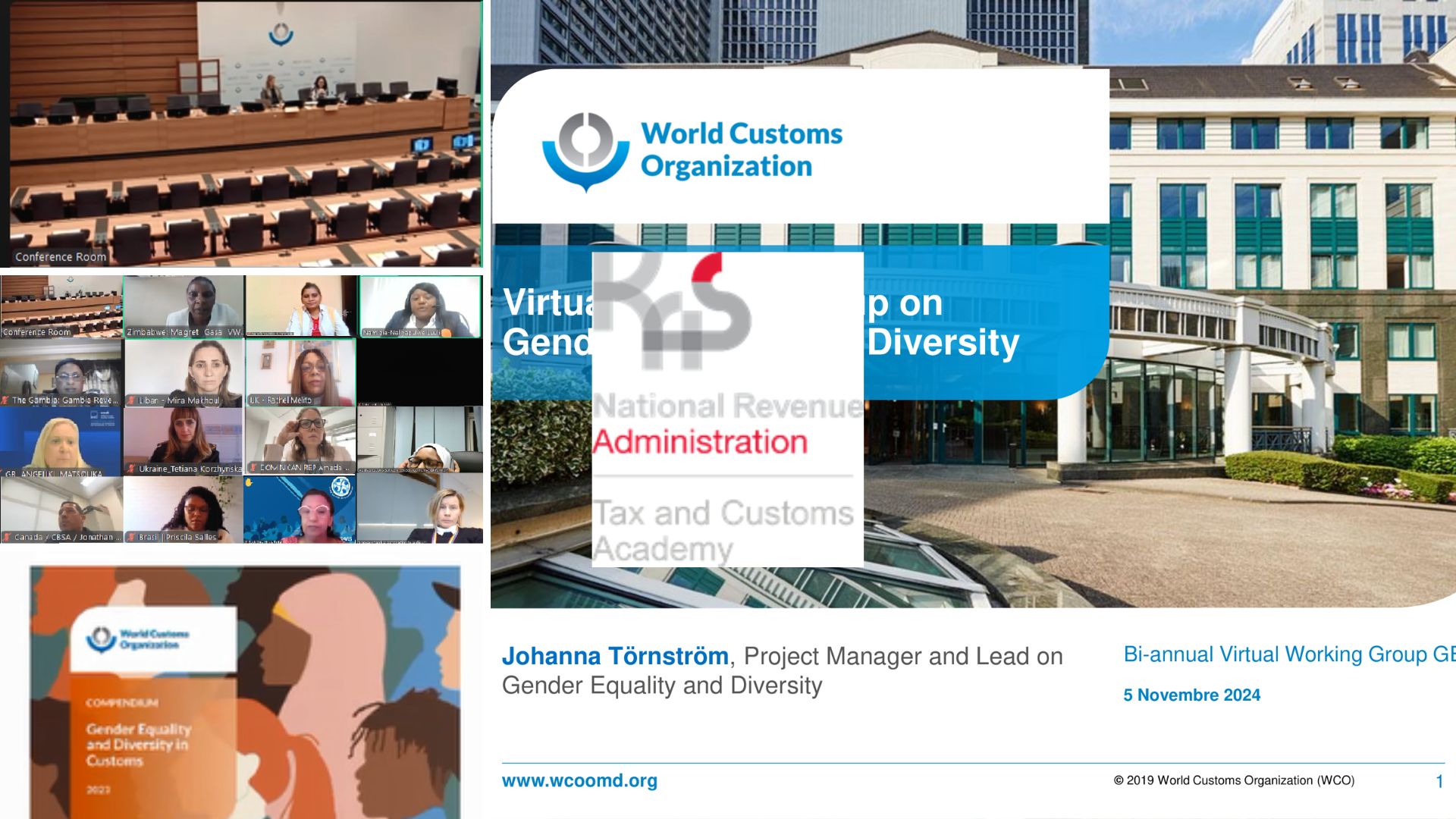At the regular meeting of the World Customs Organization’s Virtual Working Group on Gender Equality and Diversity in Customs (hereinafter referred to as the WCO GDG VWG), held on November 5, representatives of the WCO and over 60 delegates from 38 WCO member countries were present, including Azerbaijan, Argentina, Australia, Benin, Burkina Faso, Great Britain, Gambia, Greece, the Dominican Republic, Ethiopia, Zambia, Zimbabwe, Iceland, Indonesia, Ireland, Italy, Canada, Cambodia, Colombia, Côte d’Ivoire, Liberia, Lebanon, Mauritius, Moldova, Maldives, Namibia, Nepal, Niger, Germany, Norway, the USA, Togo, Tunisia, Ukraine, Sweden, Chile, and Japan.
At the regular meeting of the World Customs Organization Virtual Working Group on Gender Equality and Diversity in Customs (WCO VWG GED), which took place on November 5, representatives of the WCO and over 60 delegates from 38 WCO member countries were present, including Azerbaijan, Argentina, Australia, Benin, Burkina Faso, Gambia, Germany, Greece, Ethiopia, Iceland, Indonesia, Ireland, Italy, Canada, Cambodia, Côte d’Ivoire, Colombia, Lebanon, Liberia, Maldives, Mauritius, Moldova, Namibia, Nepal, Niger, Norway, Dominican Republic, USA, Sweden, Togo, Tunisia, Ukraine, United Kingdom, Zambia, Zimbabwe, Chile, and Japan.
During the event, the WCO presented the achievements of the GDG Network, the results of the latest WCO training events, and updated tools for promoting gender equality. In particular, participants were introduced to the third edition of the Gender Equality Compendium and learned about the creation of a new WCO GDG VWG folder on the CLiKC! platform, which will be accessible to all members of the WCO GDG VWG. In addition, the customs administrations of the United Kingdom and Namibia shared their experiences in successfully implementing their gender initiatives.
One of the speakers at the event was Tetyana Korzhinska, Vice-Chair of the WCO GDG VWG for 2024-2025, Doctor of Philosophy, Deputy Head of the Department of Canine and Veterinary Support of the Canine Support Department, Coordinator on Gender Equality within the competence of the Department of Specialized Training and Canine Support of the State Customs Service, member of the Working Group on Implementation of Gender Policy in the State Customs Service under the chairmanship of the Deputy Head of the State Customs Service Vladyslav Suvorov.
The active participation of the State Customs Service in WCO initiatives demonstrates an understanding that promoting gender equality is not a one-time action, but a long-term process of transforming the activities of customs and law enforcement administrations. This approach contributes to the creation of a more efficient and transparent personnel management system capable of meeting modern challenges and ensuring sustainable development.
At the event, the WCO presented updated WCO tools for promoting gender equality and diversity, the achievements of the GED Network, and announced the publication of the third Compendiums on GED in Customs. In particular, participants gained access to the updated WCO VWG GED folder on the WCO CLiKC! platform and learned about the results of recent training events on GED. Customs administrations from the United Kingdom and Namibia shared experiences of successful implementation of gender initiatives that can be used by other countries.
One of the speakers at the event was Mrs Tetiana KORZHYNSKA, PhD in Pedagogical Sciences, Deputy Head of the Division of Canine and Veterinary Services of the Directorate of Canine Services of the Department for Specialized Training and Canine Services of the State Customs Service of Ukraine, WCO RTC, WCO RDTC (Khmelnytskyi, Ukraine), Member of the Working Group on the Gender Policy Implementation of the State Customs Service of Ukraine (SCSU) under the chairmanship of the Deputy Chairman of the SCSC, Vladyslav Suvorov. It is worth noting that recently the international community elected her as the Vice-Chair of the WCO VWG GED for 2024-2025.
The active participation of the State Customs Service in WCO initiatives demonstrates an understanding that promoting gender equality is not a one-time action but a long-term process of transforming the customs administration. Such an approach contributes to the creation of a more efficient and transparent personnel management system capable of meeting modern challenges and ensuring sustainable development.

